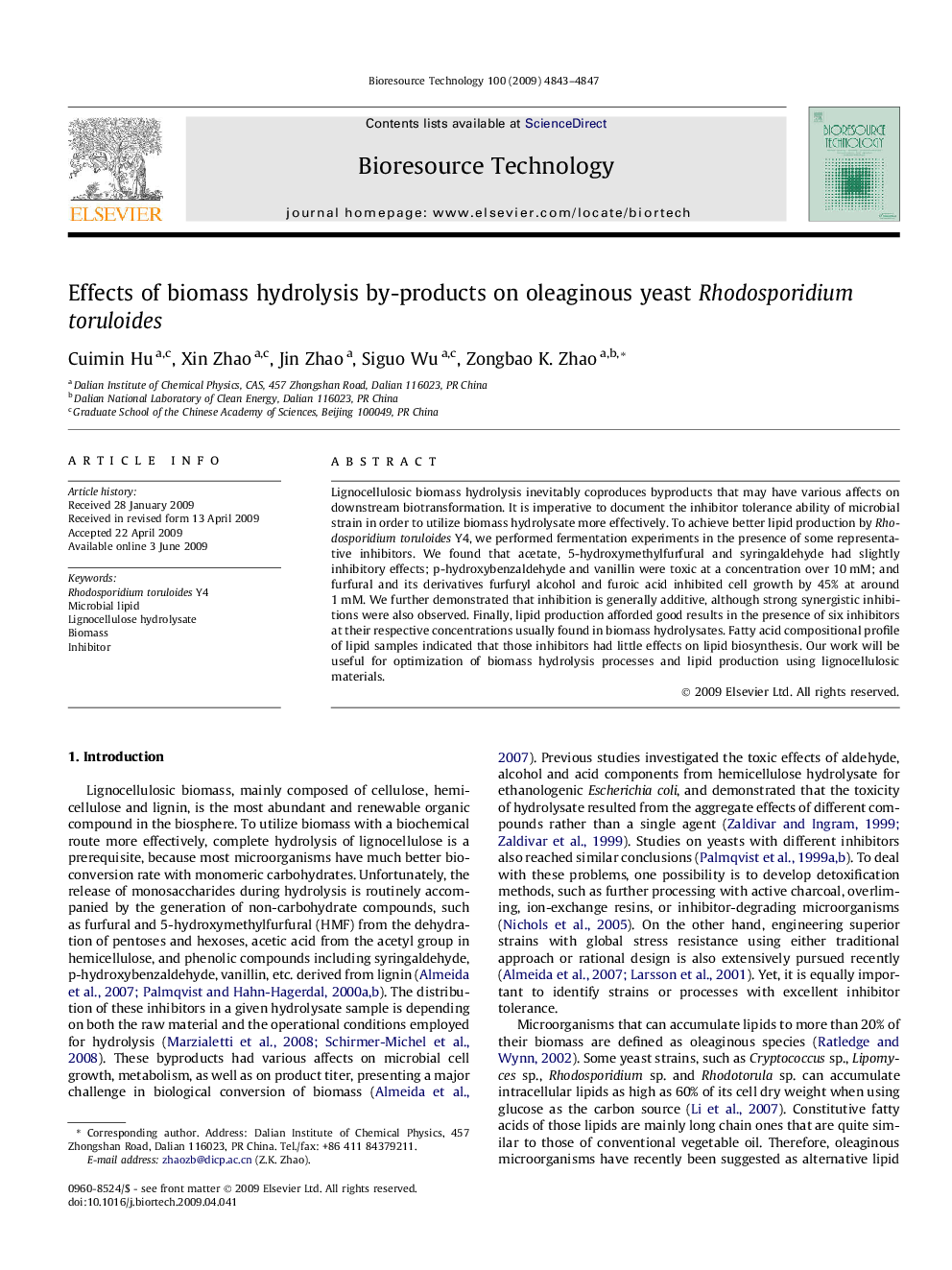| Article ID | Journal | Published Year | Pages | File Type |
|---|---|---|---|---|
| 683174 | Bioresource Technology | 2009 | 5 Pages |
Lignocellulosic biomass hydrolysis inevitably coproduces byproducts that may have various affects on downstream biotransformation. It is imperative to document the inhibitor tolerance ability of microbial strain in order to utilize biomass hydrolysate more effectively. To achieve better lipid production by Rhodosporidium toruloides Y4, we performed fermentation experiments in the presence of some representative inhibitors. We found that acetate, 5-hydroxymethylfurfural and syringaldehyde had slightly inhibitory effects; p-hydroxybenzaldehyde and vanillin were toxic at a concentration over 10 mM; and furfural and its derivatives furfuryl alcohol and furoic acid inhibited cell growth by 45% at around 1 mM. We further demonstrated that inhibition is generally additive, although strong synergistic inhibitions were also observed. Finally, lipid production afforded good results in the presence of six inhibitors at their respective concentrations usually found in biomass hydrolysates. Fatty acid compositional profile of lipid samples indicated that those inhibitors had little effects on lipid biosynthesis. Our work will be useful for optimization of biomass hydrolysis processes and lipid production using lignocellulosic materials.
